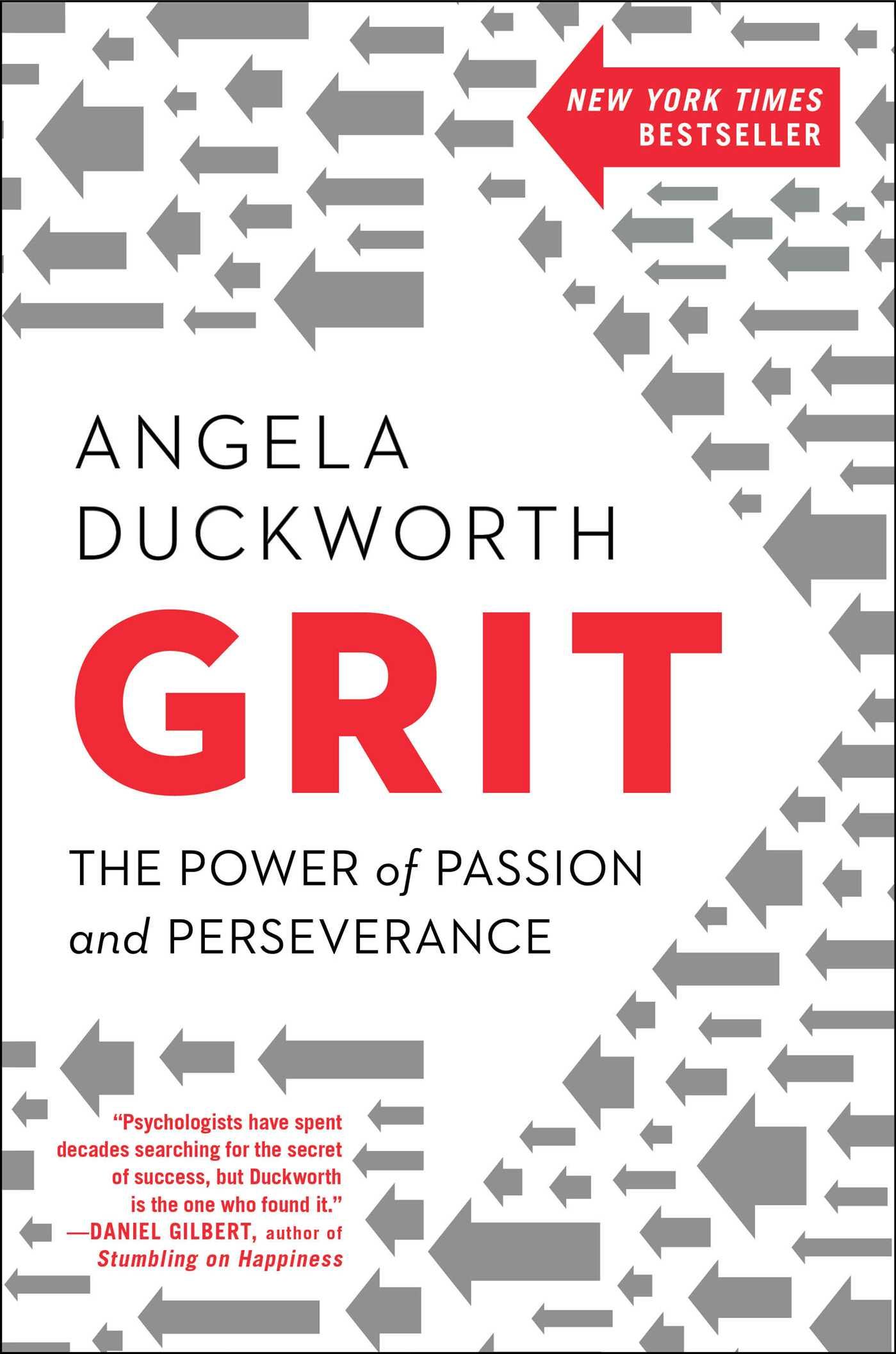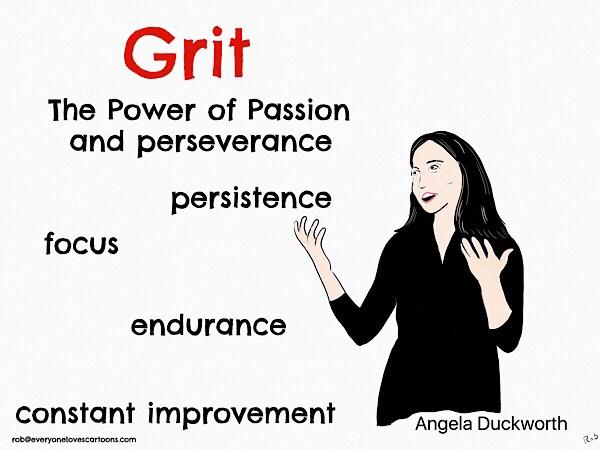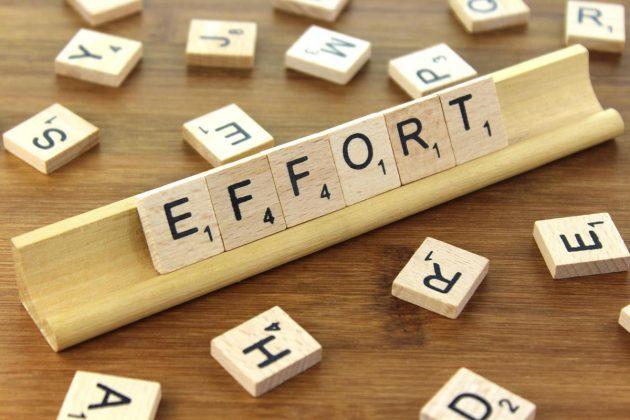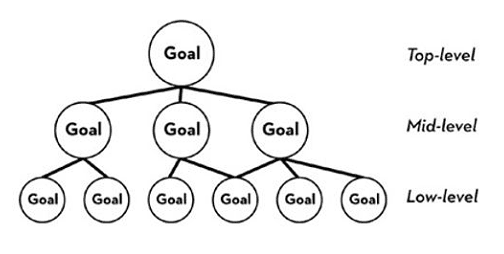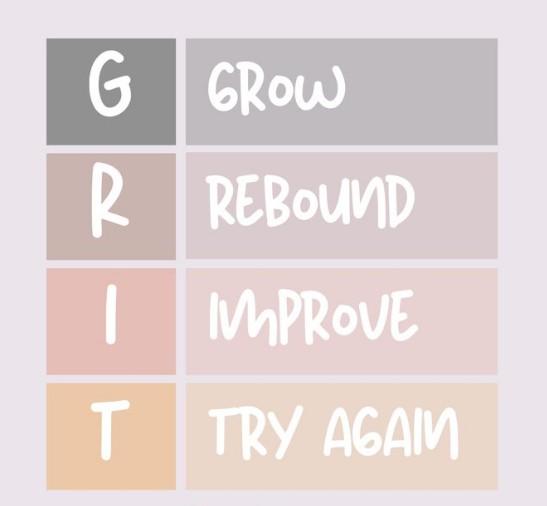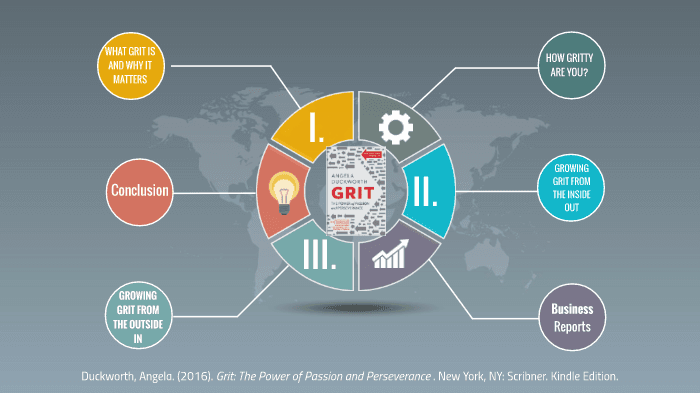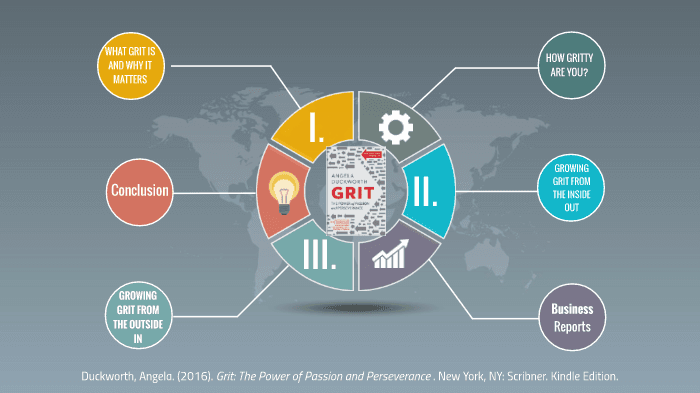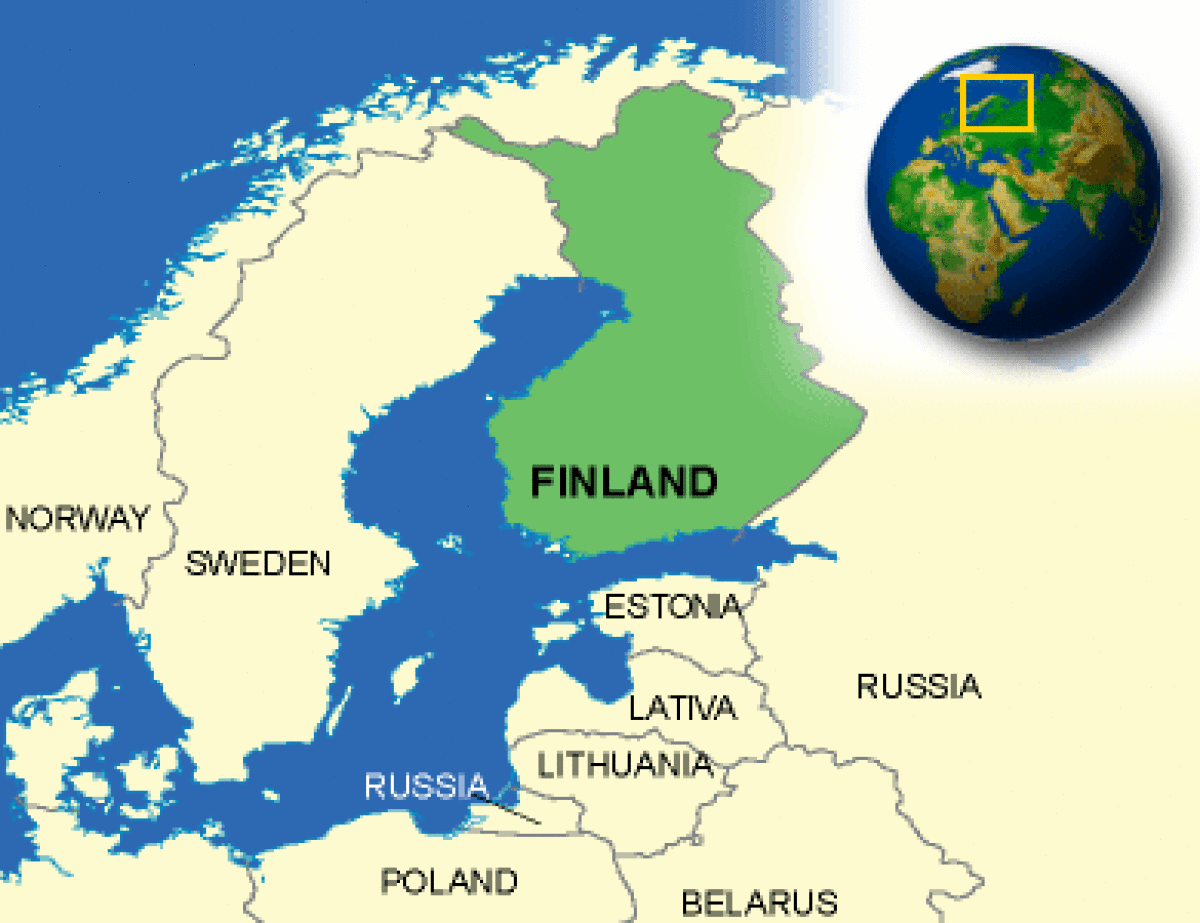K 's Key Ideas from Grit
by Angela Duckworth
Ideas, facts & insights covering these topics:
32 ideas
·22.4K reads
86
8
Explore the World's Best Ideas
Join today and uncover 100+ curated journeys from 50+ topics. Unlock access to our mobile app with extensive features.
Grit - The Power of Passion and Perseverance
Grit is an investigation into the importance of determination and perseverance for success. Society tends to focus on the importance of natural talent. We observe athletes, musicians, and academics performing at the highest level and assume they are there because of lucky genetics. The author accepts that genetics play a part in achieving success, but she suggests that effort is twice as significant. The book provides guidance on how you can encourage grit, maintain grit, and intelligently apply effort to improve your chances of reaching your goals.
198
2.24K reads
What Grit Is and Why It Matters
Duckworth describes the concept of grit as a form of perseverance. It is essential to anybody attaining high levels of achievement. High achievers are never satisfied with minimal goals. Therefore, these people never believe they will reach their goals, as they are always striving for more. High achievers are also constantly unsatisfied with their performance and their outcomes. Interestingly, these people enjoy this dissatisfaction as they always want to chase more. True grit consists of enduring passion, pain, and frustration. People with true grit do not have ‘giving up’ as an option.
206
1.76K reads
Talent
Society is obsessed with the idea of natural talent. We love the idea of people being innately good at things, and we use this as an excuse for why we cannot achieve specific goals. However, Duckworth challenges the idea that talent should be considered the most important feature of success. She does not believe that talent is the only reason we achieve our goals. Effort is just as important as talent when considering outcomes. Additionally, individuals’ obsession with talent can distract them from applying maximal effort to all they do.
191
1.37K reads
Research has found that 66% of US employers favor hard work, grit, and determination when looking for a suitable employee. Therefore, it is integral that you stop obsessing over talent. Similarly, a recent study by psychologist Chia-Jung Tsay found that an overwhelming majority of music experts attributed their achievements to hard work, effort, and practice. Therefore, those who are successful suggest hard work is vital, and those who want to build a successful team look to hire hard workers. In sum, talent isn’t everything.
182
1.22K reads
Effort
Our overemphasis on talent allows us to believe that high achievers are doing something we physically couldn’t. For example, we start to believe that an Olympic athlete has natural talents that we could never possibly match. However, in overfocusing on talent, we forget about the early starts, hours of training, and the athletes’ strict diet regime. We forget the effort that has been put in by this athlete to be successful.
187
1.12K reads
Rather than logically explain why high achievers are successful, we instead attribute an element of mystery to these individuals. We find it more appealing to assume that others are superhuman rather than accepting that we are merely average and do not put in enough effort. Our overfocus on talent stops us from comparing ourselves to high achievers. This lack of comparison limits us, as we need this comparison to drive us to put in our maximal effort.
187
989 reads
Effort is Twice as Important as Talent
Duckworth sees talent as being reliant on effort. Subsequently, she defines talent as ‘how rapidly your skills develop when you commit time and effort. Then, your achievements are the result of your developed skills being put to good use. Duckworth accepts that her formula for success does not consider luck and opportunities. However, she is more interested in the ways that we can improve our chances of being successful. Opportunities and luck are external factors that we cannot directly influence. Effort, on the other hand, is entirely under our control.
190
887 reads
Duckworth introduced the idea that achievement is a combination of skill and effort. Specifically, she provided the following equation for success:
Skill × Effort = Achievement
An excellent example of how effort is more important than skill is the award-winning writer, John Irving. Irving was far from being a natural talent. He struggled in school, getting held back a year and receiving below-average grades in all subjects. In fact, he only received a C- in English.
189
800 reads
Irving eventually learned that he struggled at school as he had dyslexia. However, instead of seeing this as a limitation that would stop him from ever being successful, Irving saw this as motivation to work even harder. He worked twice as hard for the remainder of his life. For example, he would write upwards of ten drafts of his novels so he could perfect them. Irving had the hope that this hard work would eventually pay off. The results speak for themselves: his novel The World According to Garp won the National Book Award in 1978.
180
728 reads
Exercise as an Example of Effort vs. Talent
Duckworth sees exercise and fitness as perfect examples of her theory of effort being more important than talent. For example, she explains that exercise equipment, including clothes and shoes, are some of the most frequently bought categories. Despite this, studies suggest that 40% of people use their fitness equipment much less than they initially intended. Therefore, fitness is less dependent on your ability and your opportunities (the equipment) and more to do with how hard and how frequently we exercise.
181
766 reads
With all things in life, it is easier to quit than persevere. Subsequently, most people quit too early on in a process. They quit when there is still ample opportunity to receive a positive outcome from their efforts. Therefore, Duckworth encourages readers to dig deep when things aren’t going their way. Instead of quitting, you should decide to put maximum effort in consistently day after day. If you continue to put maximum effort in without excuse, then you are destined to succeed.
188
698 reads
Talent vs. Skill
There is a tendency for people to equate talent with skill. However, they are not the same. Duckworth describes talent as a natural ability. In contrast, you can only develop true skill by putting hours of effort into developing a particular attribute. You will and should be spending considerably more time on your skill than on talent.
Significantly, Duckworth also differentiates between skill and achievement. Your achievements are outcomes that are only attainable if you have put sufficient effort into developing your skills.
184
671 reads
Goals
Each of us will have a wide range of goals. These goals can range from short-term lists of what you want to do today to life-time goals. Duckworth describes this range of goals as a hierarchy. The bottom of your goal hierarchy is filled with the goals you want to attain as soon as possible. These goals are the foundation of your success. Completing daily and weekly goals are fundamental to attaining the goals higher in your hierarchy. Hence, Duckworth describes the bottom of your goal hierarchy as a way of moving towards your larger goals.
183
609 reads
For example, if you don’t send off your emails earlier in the day, you won’t have time to pursue a substantial creative project. Get your lower goals out of the way, as they are just a means to an end. The higher up the goal hierarchy you go, the more the goals become the end in themselves. Hence, Duckworth recommends that you think of your high-end goals as a compass that guides all your lower goals. These lower goals underpin your ultimate, overarching goal that sits at the top of your hierarchy.
182
569 reads
Duckworth provides the example of Tom Seaver. Tom was passionate about baseball from a young age. He managed to make his dream a reality by making every goal in his life about pitching in baseball. For example, Tom would stay in the shade if he was traveling through a sunny climate. He did this because sunburn on his pitching arm would interfere with his goal of being a successful baseball pitcher. Every detail of his life was planned around his overarching goal. Subsequently, he retired at the age of 42, having pitched 3,640 strikeouts over a 20-year career in major league baseball.
177
536 reads
Grit Goals
Grit involves persevering and fighting through challenging times. However, grit also involves keeping your top hierarchy goals for a long time. The goals at the top of your hierarchy should be critical to every action in your life. Therefore, a gritty person develops top-level goals and integrates them into their lower goals over a long period. Subsequently, every small goal they complete is one step closer to achieving their high-level goal.
194
549 reads
Is Grit Something You are Born With?
There isn’t a clear answer to this. However, it's likely that we are partly born with it.
Duckworth believes that grit is a combination of your genetics & experience. Although genetics does have a small impact on your grit, it is possible to heavily improve your grit through experiences. e.g: Duckworth explains that old adults could be potentially grittier due to them growing up in a different cultural era. This was an era where perseverance was instilled in most people from a young age. However, an alternative explanation is that we mature over time & become grittier because of this.
182
502 reads
The Four Characteristics of a Gritty Person
- Passion & interest are integral. To be gritty, individuals must enjoy what they're doing & be committed to their passions. This passion has to guide them towards dedicating portions of their day, every single day, to their interests. On top of this, a gritty person will understand that interests do not become specialisms overnight.
- An ability to practice. Individuals with grit will dedicate themselves to practicing every day to perform better than the day before. Practicing will not make you perfect. However, it will make you more proficient.
188
516 reads
3. Have a purpose. Every gritty person needs an overarching purpose that gives them their passion and motivation. Even the hardiest individual will struggle to continue through hardships if they feel they don’t have a purpose. Therefore, individuals with grit will understand their purpose and adjust their decisions and actions according to their purpose.
4. A gritty person needs hope. Hoping for a better life for you or those around you is critical. If an individual does not have a belief that they can make a change, then they will not commit to persevering when things get tough.
188
471 reads
The importance of passion is, that it provides you with daily motivation to keep pushing forwards. A 2014 Gallup poll found that ⅔ of US workers aren't motivated by their job. Only 13% of workers said they feel engaged with their work. This highlights a clear problem with people pursuing professional goals that they aren't passionate about. Lack of passion creates a workforce that lacks the grit to succeed. In 2003, a psychologist interviewed 100s of US employees. The results confirmed that people are at their happiest when their work intersects with their interests. Happiness breeds success.
179
428 reads
Therefore, try and pursue a professional career that suits you. For example, creatively-minded people will never be fully engaged in an administrative desk job. This match will only lead to less success for the company they work for and less personal success. Hence, Duckworth recommends finding a job that allows you to remain gritty to pursue a higher personal goal.
181
436 reads
Growing Grit From the Inside Out
Emulation Rather than Imitation
Duckworth sees wise parenting as including love, limits, & latitude. Wise parents give their children constant support to emulate them & succeed with whatever goals they have, instead of imitating their every move. The older we get, the more we can pass judgments on our parents’ actions & behaviors. We learn from a young age to imitate their actions. However, instead of just copying their behaviors, we must learn to incorporate their successful approaches into our own goals. Gritty people emulate successful people & their work rather than following them blindly.
188
435 reads
The Hard Thing Rule
Duckworth recommends that each of your family members implement the hard thing rule into their lives. The hard thing rule suggests that you commit 100% to something for a specific period. Give it your all, and do not stop giving 100% until the period has elapsed. This thing should not be easy, but should instead be a hard thing that can reap benefits. If you decide to continue after the period, then this is great. Either way, you are developing a grittiness that will help you commit to long-term goals.
190
433 reads
If you are a parent, Duckworth emphasizes the importance of the child choosing their own hard thing. The length of the period will depend on the age of the child. For younger children, a season or a year is the best commitment length. Then, as they grow older, this period can be lengthened. For example, Duckworth recommends a 2-year minimum rule at high school. This period should continue to increase as you get older and adopt new responsibilities.
182
405 reads
Grit and School
There is a clear difference between interesting and hard. Some children will find school hard and uninteresting. Similarly, the same children might find their lunchtime interesting, but not hard. However, there are some things at school that are both hard and interesting—for example, learning how to do a front flip in gymnastics. After-school activities are often the most crucial part of children’s schooling. The combination of hardship with interest will set children up for pursuing their goals later in life.
180
395 reads
Research suggests that children who are involved in activities outside of their regular schooling do better overall. Not only do these children have improved grades, but they also gain confidence in their abilities. Plus, they learn how vital commitments and consistent practice can be in improving.
To be genuinely gritty, children have to avoid flicking between sports and activities when they get bored or are struggling. They must spend years working on one sport or art. Having adopted commitment for years, they will notice that effort can improve skills and lead to achievements.
186
391 reads
Growing Grit From the Outside In
Grit and Culture
Duckworth defines culture as a group of people who share the same values and norms. Therefore, if you want to maintain your grit levels, it is best to immerse yourself in a gritty culture. Surround yourself with gritty people and you will benefit in the long run. The culture you immerse yourself in will be hugely important to your personal growth. Your culture becomes your identity. Therefore, surround yourself with people who make you a better and more committed person.
185
391 reads
Practice Intelligently
Practicing hard can be a waste of time if you are not practicing intelligently. For example, suppose you are just on autopilot by copying a textbook word-for-word as a study technique. In that case, you won’t necessarily succeed. Intelligent practice is a concept introduced by cognitive psychologist Anders Ericsson. Ericsson suggests that people adopt precise goals with a focus on every detail. They track everything and respond accordingly. For example, top sportspeople will track every health metric to make the changes required to improve.
183
420 reads
The Finnish Culture of Grit
Duckworth described Finland as a country where grit is widely promoted in the culture. She attributes this to long, cold winters & history of having to defend themselves. Subsequently, they have their own word for grit, sisu, which refers to someone having the quality of perseverance. A Finnish psychologist, Emilia Lahti, researched sisu & found that 83% of Finns think sisu is learned and not innate.
Therefore, Duckworth encourages readers to encourage grit and perseverance in their lives. Try and forget about talent and natural ability, and put all of your efforts into pursuing your passions.
182
404 reads
Intelligent practice is deliberate, this will help avoid repetition for the sake of it & will subsequently bring better results.
Ericsson developed a program to help train doctors to deal with specific critical situations. The program gives doctors feedback after suggesting specific treatment methods, providing hints if they end up on the wrong path. During a training session, a physician remained on autopilot. He was putting the time and effort in but was not taking the advice on board. After being taken aside & told to reflect, this physician then started to reap the rewards of his efforts.
178
389 reads
Practice Intelligently
Practicing hard can be a waste of time if you are not practicing intelligently. For example, suppose you are just on autopilot by copying a textbook word-for-word as a study technique. In that case, you won’t necessarily succeed. Intelligent practice is a concept introduced by cognitive psychologist Anders Ericsson. Ericsson suggests that people adopt precise goals with a focus on every detail. They track everything and respond accordingly. For example, top sportspeople will track every health metric to make the changes required to improve.
175
405 reads
Criticism
Duckworth defines grit as “passion and perseverance for very long-term goals”. She believes that this is what distinguishes successful people from unsuccessful people. Critics argue that her definition of grit is too broad and does not provide a clear understanding of what it means to have grit.
Critics also argue that it is not fair to compare the success of students with different backgrounds. For example, students who attended good schools or come from wealthy families might be more successful than those who don’t attend good schools or come from poor families.
179
449 reads
IDEAS CURATED BY
CURATOR'S NOTE
What makes high achievers successful, MacArthur Fellow Duckworth writes, is grit—a “combination of passion and perseverance”—coupled with their raw talent. Talent is important, she acknowledges, but talent multiplied by grit is what builds skill, and skill multiplied by grit equals achievement....
“
Curious about different takes? Check out our Grit Summary book page to explore multiple unique summaries written by Deepstash users.
K 's ideas are part of this journey:
Learn more about education with this collection
Conducting effective interviews
Identifying the right candidates for the job
Creating a positive candidate experience
Related collections
Different Perspectives Curated by Others from Grit
Curious about different takes? Check out our book page to explore multiple unique summaries written by Deepstash curators:
1 idea
Adya Singh's Key Ideas from Grit
Angela Duckworth
3 ideas
Milly Vision's Key Ideas from Grit
Angela Duckworth
1 idea
Leiren Light's Key Ideas from Grit
Angela Duckworth
Discover Key Ideas from Books on Similar Topics
7 ideas
Letters to a Young Gymnast
Nadia Comaneci
2 ideas
Thinking About Starting a Side Hustle?
success.com
23 ideas
Big Magic
Elizabeth Gilbert
Read & Learn
20x Faster
without
deepstash
with
deepstash
with
deepstash
Personalized microlearning
—
100+ Learning Journeys
—
Access to 200,000+ ideas
—
Access to the mobile app
—
Unlimited idea saving
—
—
Unlimited history
—
—
Unlimited listening to ideas
—
—
Downloading & offline access
—
—
Supercharge your mind with one idea per day
Enter your email and spend 1 minute every day to learn something new.
I agree to receive email updates
